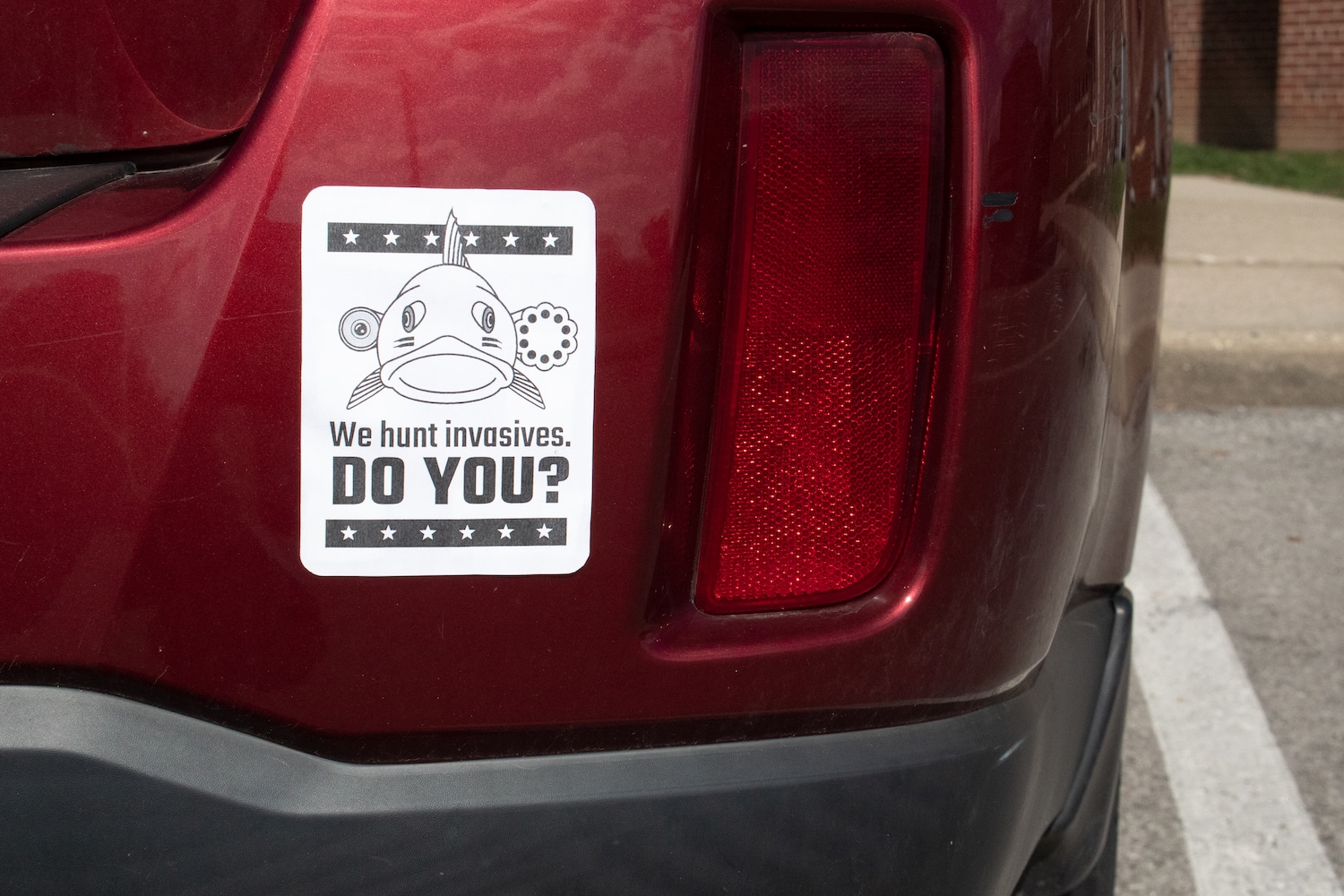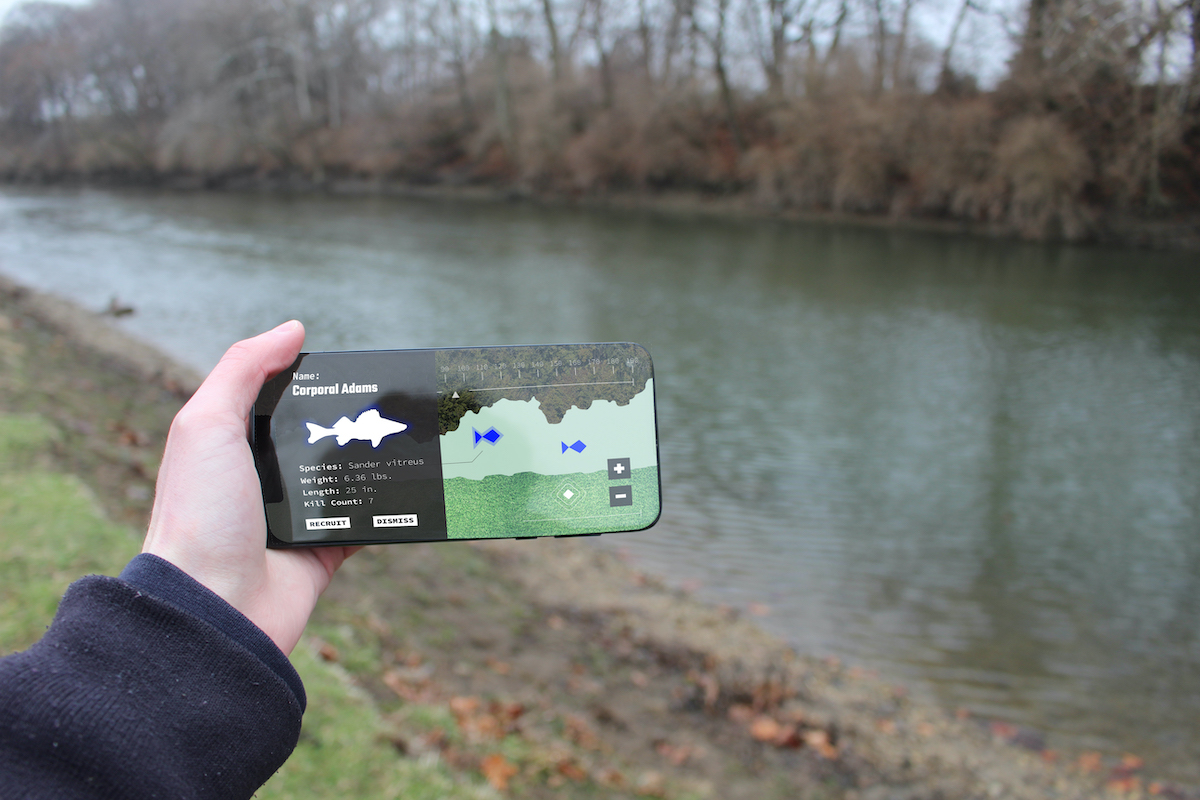Can Satire Change Minds About Invasive Species?

VISION: Drop militaristic rhetoric from ecosystems management to reconsider the national response to invasive species.
Team: Dominic Zelli, Jonathan Alexander, Ashlyn Sterling, Erin Mawhorter
School: Ball State University
When invasive species make their homes in new places, like Burmese Pythons in Florida or Zebra mussels in the Great Lakes, they can destabilize local ecosystems. In response, the United States has opted for a militaristic response: eradication. Using xenophobic rhetoric, the “war on invasive species” has cost the United States $21 billion annually, and framed nonnative species as “othered” and “foreign” invaders.
In an effort to promote dialogue about alternative approaches, students from Ball State University created River Defenders, a satire set in 2029 in which the government equips native fish species with remote controlled guns. The video proposes that in the White River near Indianapolis, walleye and smallmouth bass have been mounted with gun vests and cameras. Local citizens can then download a phone app, allowing them to direct the fish and target invasive carp as if in a video game. With a tap on the screen, kids and adults kill “the enemy” without even getting wet.
Addressing invasive species is a nuanced problem and, as the satire deftly implies, the combat analogy might do more harm than good by squashing discussion of any opportunities that new species could present. “If we refuse to explore new roles that [invasive species] might play in this ever changing environment, we will keep falling back into costly, unsuccessful methods time after time,” the students argue in their video.




